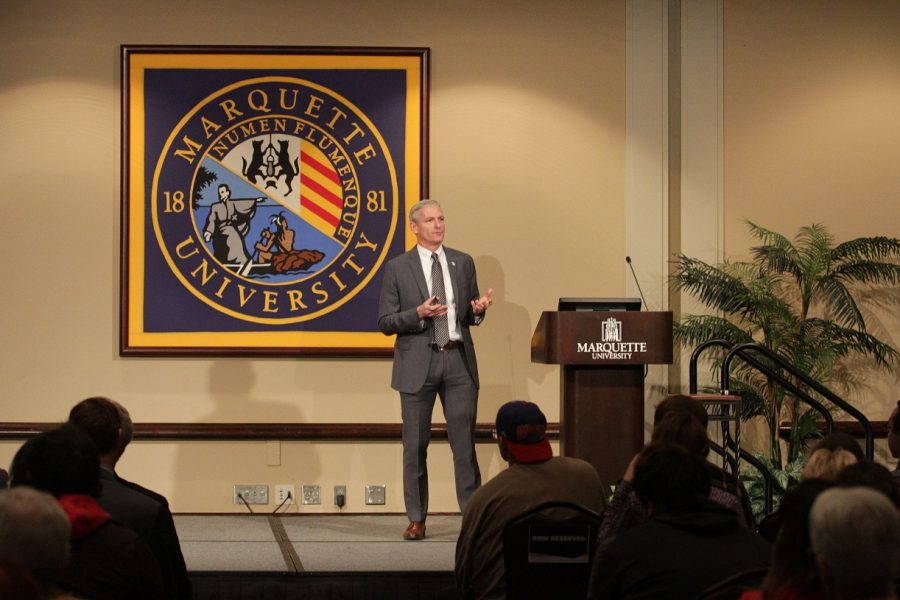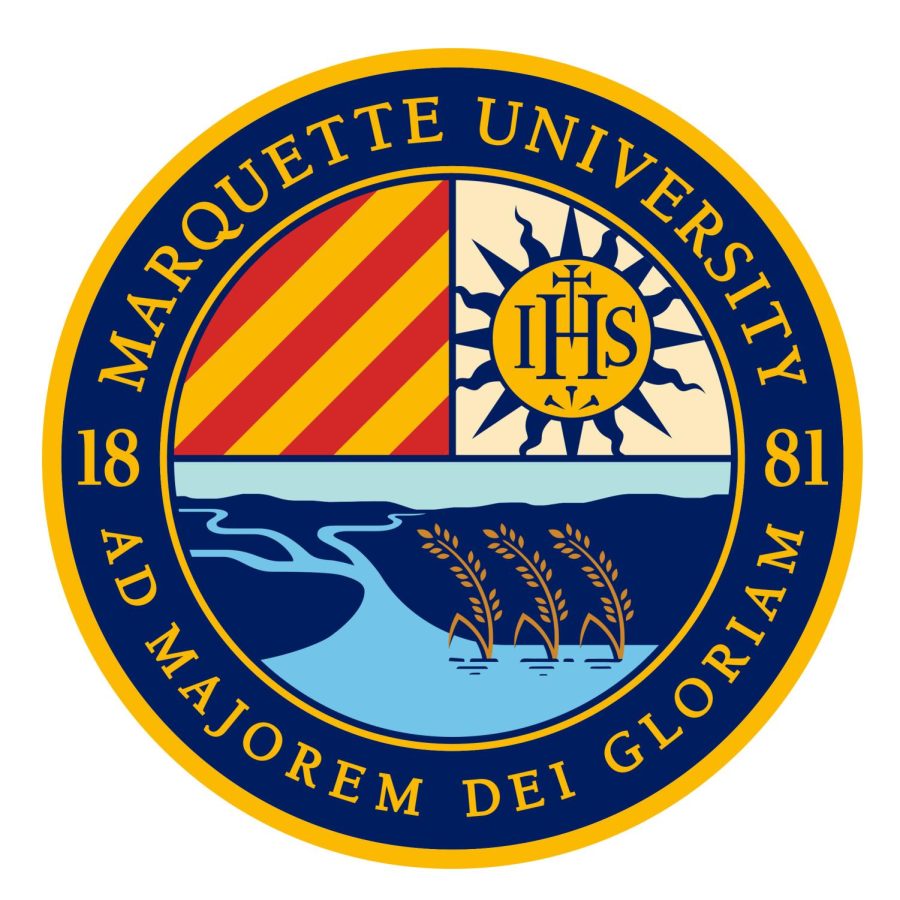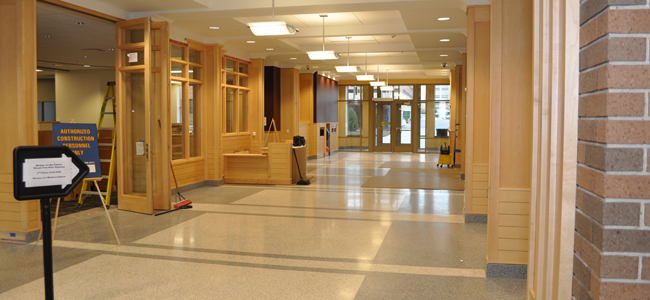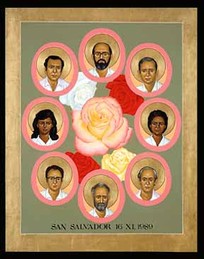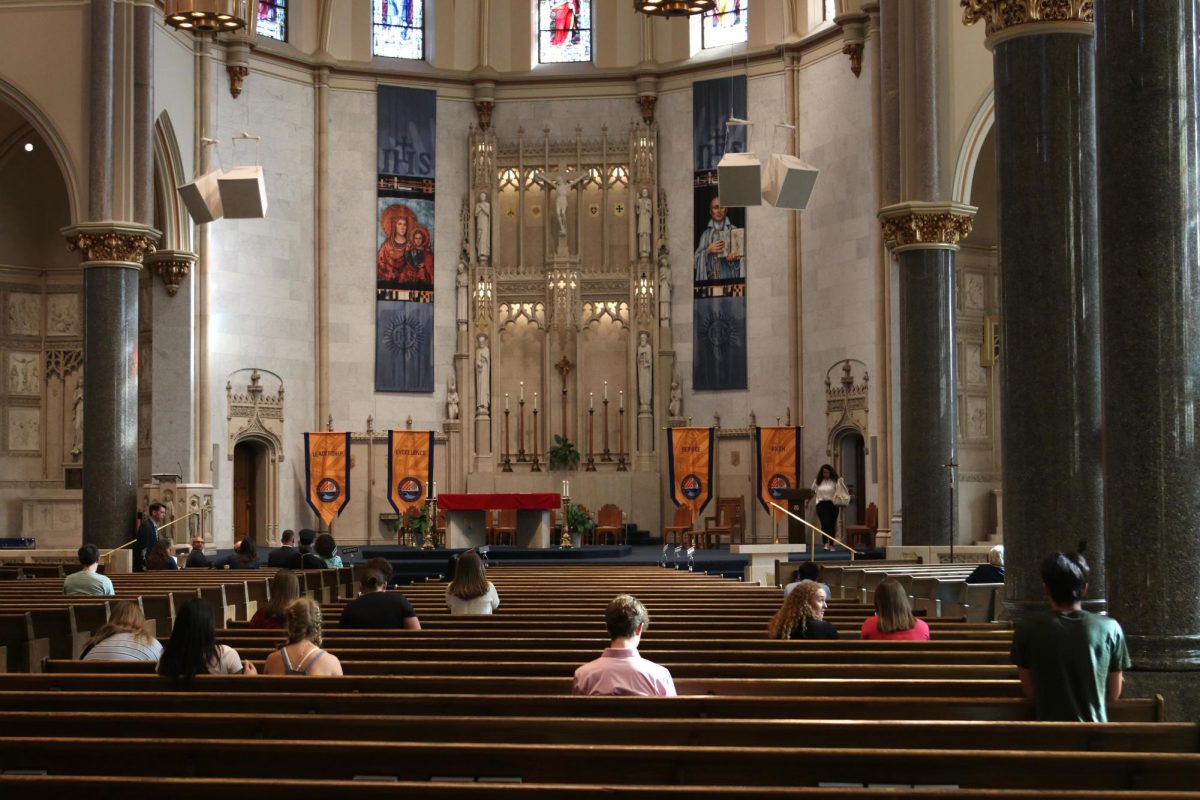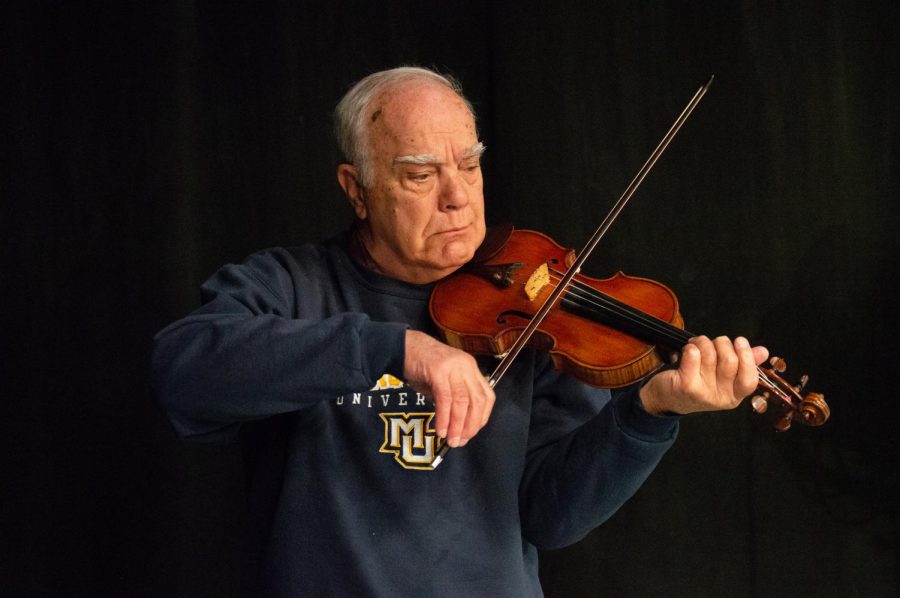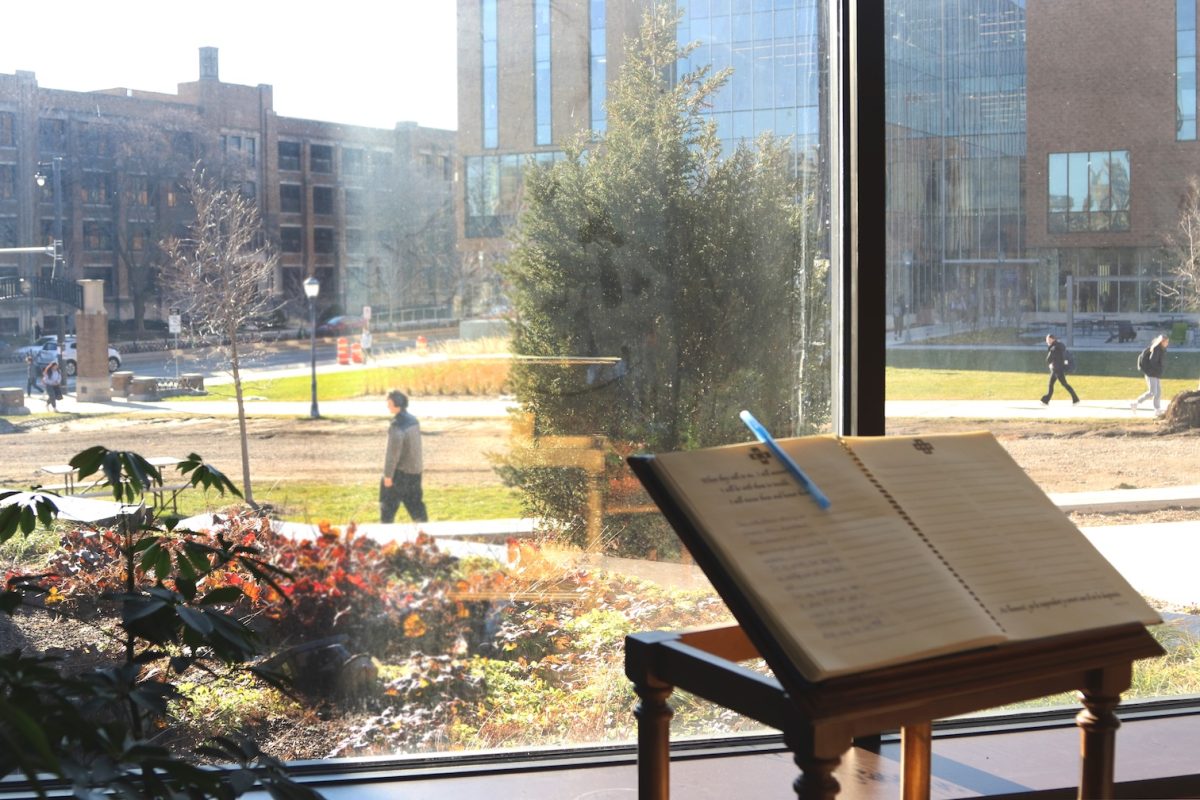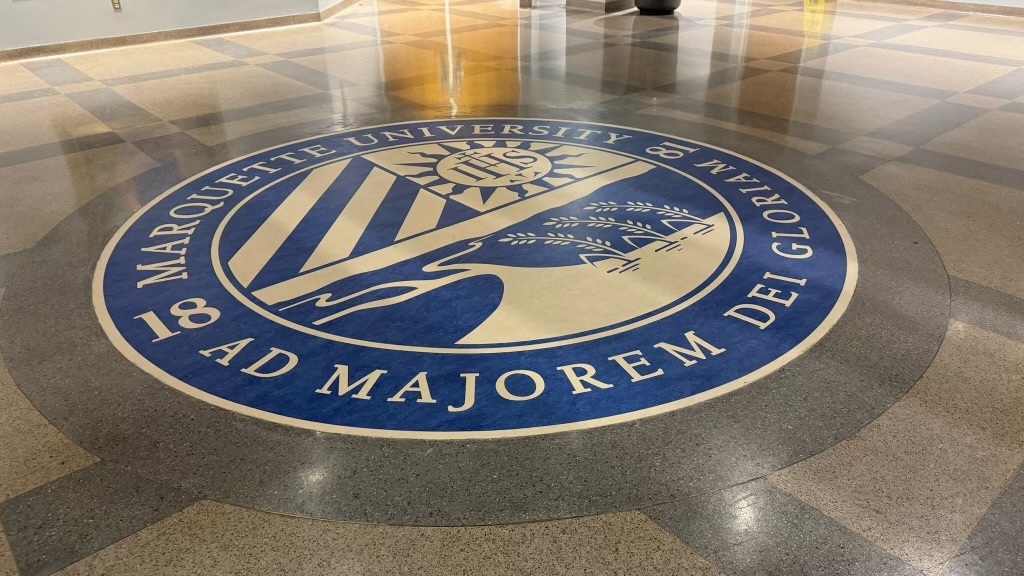
Corporate executives and Jesuit priests live in distinctly different worlds. To some, the ideals of spirituality and entrepreneurship seem inherently at ends.
But since 1969, Marquette University’s board of trustees has combined the progressive Jesuit philosophy with the business savvy to transform the university into what it is today.
From Marquette’s formation in 1881 until 1969, three senior Jesuits were solely responsible for making the university’s most important decisions.
But after World War II and Vatican II, fundamental changes to Catholic education began taking place nationwide, said Norb Tlachac, who served as assistant secretary to the board from 1965 to 1996.
The federal government placed a new emphasis on the separation of church and state, and the number of clergy members was declining. Religious schools had previously been operated almost entirely by their ordained, Tlachac said, but a transformation to lay leadership was beginning to unfold.
“Changes were coming from all over, and (the Rev. John P. Raynor) sensed that,” he said, referring to the university president he worked with for 25 years.
In recognition of the need for secular, business-minded insight, Marquette restructured the board of trustees.
Tlachac said lay guidance was seen as especially important in gaining public support for Marquette’s efforts in acquiring land and facilitating urban renewal.
“(Layperson involvement) broadened the power and ability of the university moving into a new age of education,” Tlachac said.
Since incorporating the new structure, Marquette has flourished, he said.
“Corporate support was essential,” Tlachac said. “Corporate support has done great things for Marquette University.”
“We don’t have the Wehr science buildings by happenstance. Every name on a building represents a friend of the university.”
[youtube]VM1Tw_AsnIs[/youtube]
The board’s makeup
Today, the board is composed of 32 members, eight of whom are Jesuits. University President the Rev. Robert A. Wild and the philosophy professor the Rev. James Flaherty, who is also the rector of the Jesuit Community, are the only two board members employed by Marquette.
According to university bylaws, eight to 11 Jesuits must be included in a board made up of 25 to 40 members. This ensures that a Jesuit presence is always at the heart of board decisions, Tlachac said.
The board’s executive committee is responsible for identifying outstanding alumni as potential trustees. Once nominated, candidates need approval from a full board vote.
The majority of board actions require a simple majority, but larger decisions like electing a president or amending bylaws require a two-thirds vote and majority support from Jesuit members, said Steve Frieder, assistant to the president and corporate secretary for the board.
Many of the lay members are leading business executives, working for businesses like Opus Corporation, Robert W. Baird & Co., Northwestern Mutual and Wisconsin Energy Corporation. Others include Glenn “Doc” Rivers, coach of the Boston Celtics, and Ulice Payne, Jr., former president and CEO of the Milwaukee Brewers.
Trustees do not receive financial compensation for their work, as stated in the bylaws.
Trustees may serve a maximum of four terms, requiring reelection every three years. After serving 12 years or reaching the age of 70, members can no longer be reelected, Frieder said.
In order to work efficiently, the board is divided into six committees: enrollment and academic excellence, finance and audit, governance and administration, student experience, advancement and public affairs, and marketing and athletics.
Four times a year, all board members converge on campus for a full day of meetings in the Alumni Memorial Union’s fifth floor conference room. Committee members stay in contact between meetings through e-mail, phone conferences and correspondence with Frieder.
Mary Ellen Stanek, managing director and director of asset management for Baird, has been a trustee since 1999, serving as vice chair from 2003-’06 and chair from 2006-’09.
She said the qualities of “wisdom, wealth and work” define an effective board member.
Seventy-two percent of the trustees are members of the “Marquette University 1881 Society,” meaning they have donated at least $50,000 to the university.
“We’re looking for volunteers that will provide a level of guidance and expertise,” Stanek said. “Certainly we’re looking for individuals who can be supportive of the university in terms of our own charitable support and also being an ambassador for the university locally and internationally.”
Doing business with the board
Several of the trustees’ businesses have formal relationships with the university, providing construction services, advertising consulting and financial planning.
Page 39 of Marquette’s fiscal year 2007 990 tax form reads, “Marquette University does business with a number of businesses owned by our trustees.” Stanek, Joseph Rauenhorst, John Bergstrom, Anne Zizzo and John Stollenwerk are the trustees listed.
Stanek said Baird helps manage Marquette’s endowment fund investments and a variety of other financial needs. Marquette fanatics may recognize Baird from the free T-shirts the company provides at basketball games each year.
“Our firm feels very strongly that what’s good for the community is good for Baird,” Stanek said. “We have a responsibility to lead in the community, to invest in the community. We need to invest in education.”
Stanek helped create the College of Business Administration’s applied investment management program, which gives top undergraduate finance students real world experience managing portfolios.
Rauenhorst, elected to the board in 2000, is the former president and chief executive officer of Opus South Corporation. Opus Corporation is responsible for the construction of the Alumni Memorial Union, the Al McGuire Center, Raynor Library, Zilber Hall, Eckstein Hall and the Discovery Learning Center.
The bidding processes for these projects have been open and fair, said Board Chair Darren Jackson. In order to avoid a conflict of interest, trustee members are not allowed to vote on measures directly affecting their business.
In 2007, Marquette paid Zizzo Group, an advertising and public relations firm, $265,408.
Trustees Ned Bechthold, chairman of Payne & Dolan Inc., and Kristine Rappé, senior vice president and chief administrative officer of Wisconsin Energy Corporation, are not alumni of Marquette. However, they have both demonstrated a “commitment to Milwaukee and Marquette,” Frieder said.
Marquette’s ambassadors
In addition to providing business services, trustees are expected to serve as ambassadors for the university, Jackson said.
He graduated from Marquette’s College of Business Administration in 1986 and has risen through the corporate ranks, having served as chief financial officer of Carson Pirie Scott, Nordstrom Stores and Best Buy. Jackson joined the Marquette board of trustees in 2004, serving as vice chair from 2006-’09 and becoming chair of the board in September 2009.
Currently, he is president and CEO of Advance Auto Parts.
As chair, his work focuses on using his business skills to advance Marquette’s mission of providing quality education for students of all backgrounds.
Jackson helped establish the Cristo Rey Jesuit High School in Minneapolis and serves on its board. The Cristo Rey Network is a group of 24 Catholic high schools across the country dedicated to providing Catholic education to low-income, urban students.
He and Stanek helped set up Marquette’s Urban Scholars Program, guiding students from Cristo Rey and Milwaukee’s Boys and Girls Club to Marquette.
Currently, much of the board’s agenda is focused on electing a new university president, Jackson said. Increasing the endowment, encouraging diversity and long-term strategic planning are the other priorities.
Trustee decisions impact not just the Marquette community, but local businesses and Milwaukee at large.
“Marquette is so important to Milwaukee,” Stanek said. “We grant over 2,200 degrees a year, and a very significant portion of graduates stay within a 100-mile radius.”
The board’s transition from fully Jesuit to a “serious, rigorously-controlled business” has enabled Marquette to grow in terms of physical size, financial stability and overall quality, Tlachac said.
“Trustees realize the results of their generosity are going to change society,” he said.

